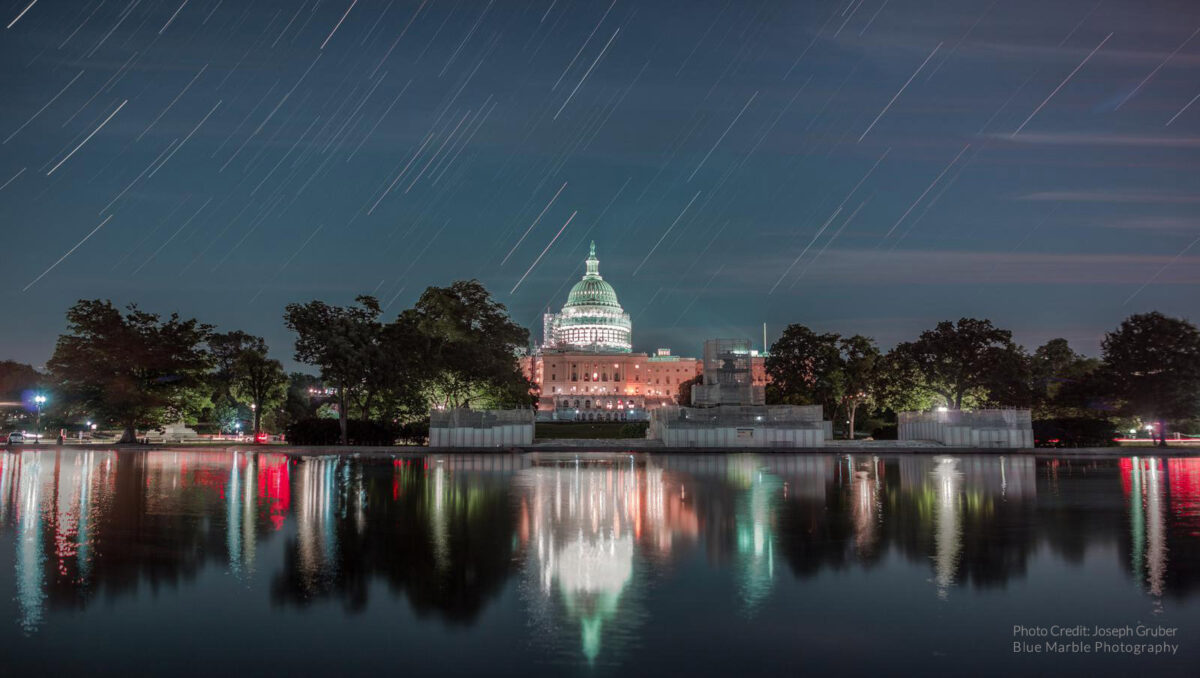The Space Advocate • Dec 08, 2021
The Space Advocate Newsletter, December 2021
From the Chief Advocate

One of the best insights I’ve ever heard about the preeminence of space policy is to view it through the lens of national priorities. In other words, which activities in space address pre-existing political needs? Those that do will receive the most attention in an administration.
This was very much in my mind last week during the Biden administration’s first meeting of the National Space Council. Led by the vice president, the council is comprised of cabinet secretaries and is designed to define and organize a whole-of-government approach to space. After lying moribund for nearly two decades, the Trump administration resurrected the council to great effect. The Biden administration decided to continue the council after receiving pleas from the space community for them to do so.
In a welcome change from previous presidential transitions, the Biden administration is maintaining significant programmatic consistency from the Trump era. The Space Force, Artemis, and aggressive experimentation in public-private partnerships will continue.
What’s changed, however, is what the Biden administration considers to be most important, policy-wise, for its term in power. These were highlighted in a new document, the U.S. Space Priorities Framework, which established climate change, space sustainability, and future workforce/STEM education issues as core areas of focus.
Biden also named five new members to the National Space Council, all reflecting his interests: the cabinet secretaries of labor, interior, agriculture, education, and the national climate advisor.
The Biden administration also emphasized that it will take a global governance approach to space activities, and work to establish good norms of behavior and use space to strengthen international alliances — all priorities aligned with his 2020 campaign.
These issues largely track with recommendations we made to the Biden administration in February. We argued that investing in space could help address domestic issues, particularly in science, skilled workforce development, and international partnerships.
Much has yet to be fleshed out, but the National Space Council’s focus reminds us once again that space is only a place. Space policy is an ever-evolving expression of national policy. And while there can be consistency in the overall direction of space programs, the overall relevance of space activities tend to reflect the interests of those in power.
Until next year,
Casey Dreier
Chief Advocate
P.S. I want to thank you for another year of The Space Advocate Newsletter. I’m humbled to report that we’ve crossed 31,000 subscribers and continue to grow at a steady pace. Writing this newsletter — and reading your feedback — is a highlight for me throughout the year. Happy holidays to all who celebrate, and a happy December solstice to all of us on (or orbiting) the Earth.
Space Policy Highlights

A Biden space policy takes shape (thespacereview.com) "For years, the space community in the US has advocated for continuity in space policy, arguing sudden shifts, particularly in NASA programs, were damaging. With the release of the new policy framework and the first meeting of the council, it’s clear the administration seeks to largely pursue an approach of continuity, with perhaps new areas of emphasis like climate change and the workforce but without changing direction on what was already in progress. The value of that continuity in changing times will soon be put to the test."

Russia confirms destructive anti-satellite test, denies debris threat (spacepolicyonline.com) "Russia confirmed today that it conducted an antisatellite test against one of its own satellites...but denied resulting debris will pose harm to other satellites or space stations. Bragging about the accuracy of the system, Russian officials insisted they violated no international agreements and did nothing that other countries have not done in the past. Meanwhile, the heads of the U.S. and Russian civil space agencies spoke via telephone and agreed on the need to protect the safety of the crews on the International Space Station."
Related: National Space Council condemns “irresponsible” Russian ASAT test

NASA sets sail into a promising but perilous future of private space stations (arstechnica.com) "NASA announced that it had awarded three different teams, each involving multiple companies, more than $100 million apiece to support the design and early development of private space stations in low Earth orbit. This represents a big step toward the space agency's plan to maintain a permanent presence in space even after the aging International Space Station, which can probably keep flying through 2028 or 2030, reaches the end of its life."

Your guide to the astrophysics decadal survey (planetary.org) "Imagine a space telescope twice the diameter of Hubble. Imagine it with exquisite instrumentation not yet invented, capable of scanning the atmospheres of exoplanets — Earth-sized ones; perhaps hundreds of them — for biosignatures, signs of life. Imagine finding this in our lifetime. This dream is now the consensus goal of the United States' astronomy community, as outlined in a new report released by the prestigious National Academies of Sciences, Engineering, and Medicine."
Planetary Radio: Space Policy Edition

Astronomy goes big (with Heidi Hammel)
The search for biosignatures on hundreds of exoplanets is the top goal for U.S. astronomers. That's the conclusion from the new, once-per-decade report from the National Academy of Sciences: Pathways to Discovery. In it, the field of astrophysics is analyzed and prioritized: establishing the major scientific questions, the tools to answer them, and how to best engage the human talent necessary to enable our continued investigation of the cosmos. Dr. Heidi Hammel, astronomer, Vice-President for Science at the Association of Universities for Research in Astronomy, and Vice President of The Planetary Society joins us to discuss the new results and what it means for the future of astronomy.


 Explore Worlds
Explore Worlds Find Life
Find Life Defend Earth
Defend Earth


